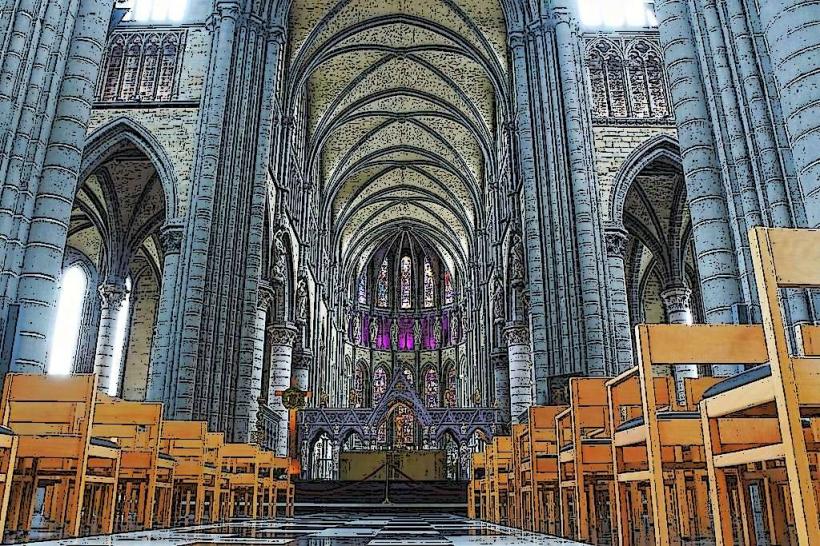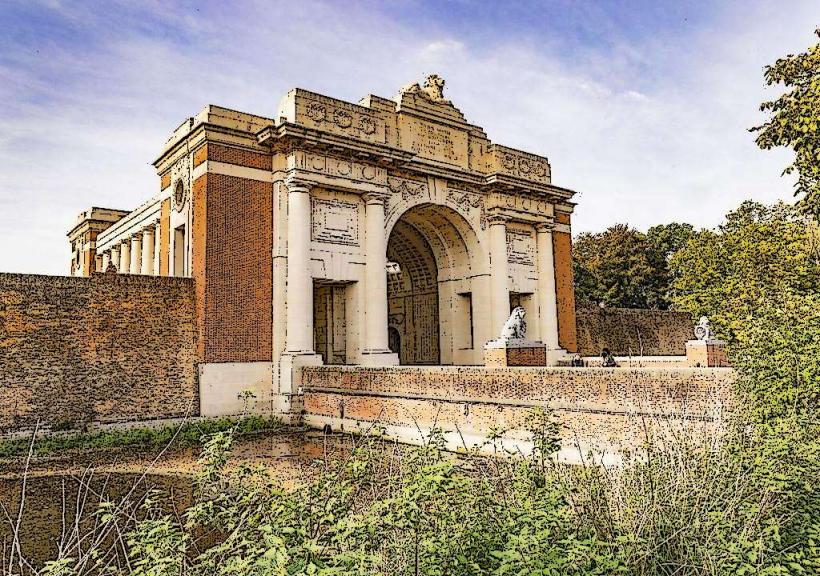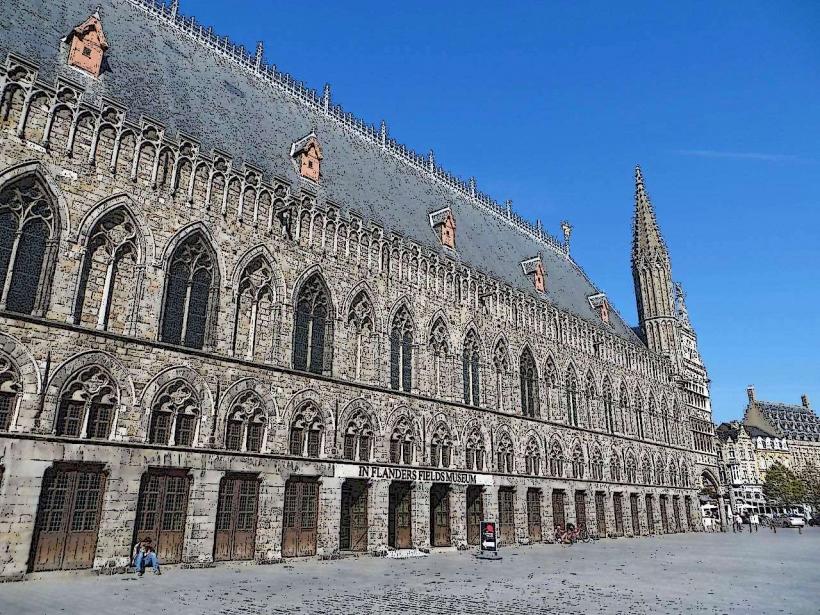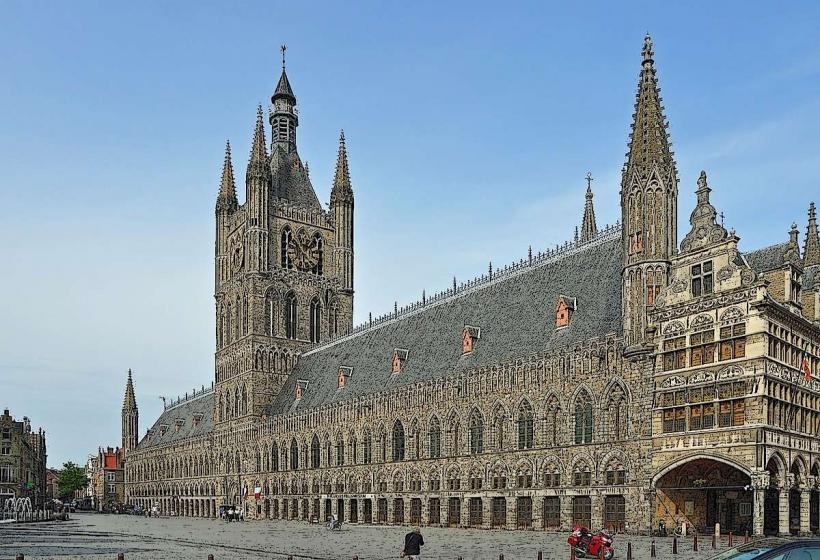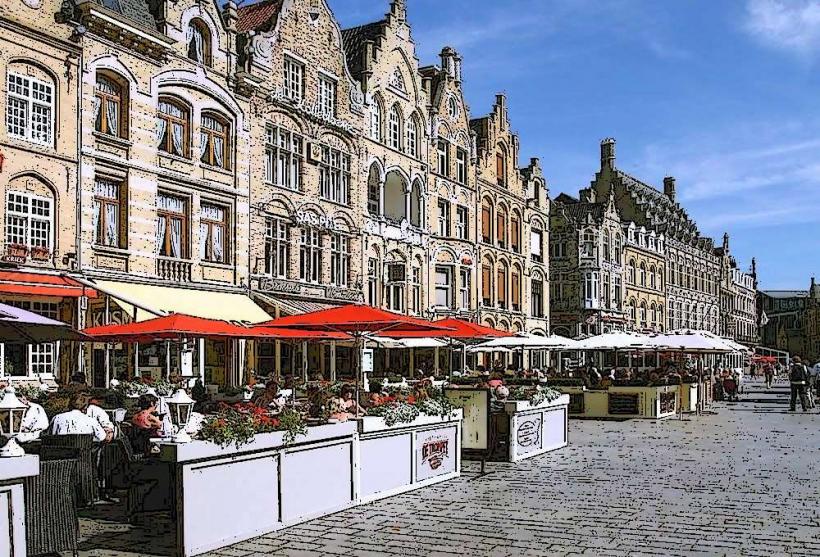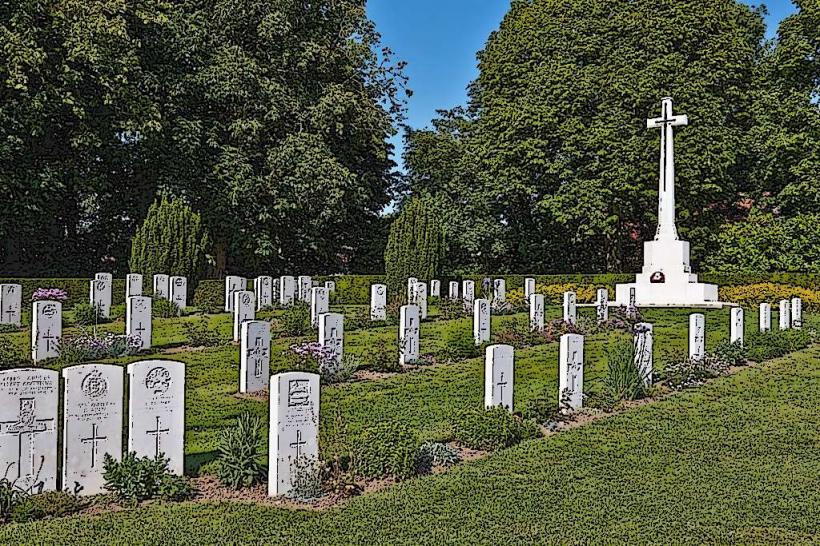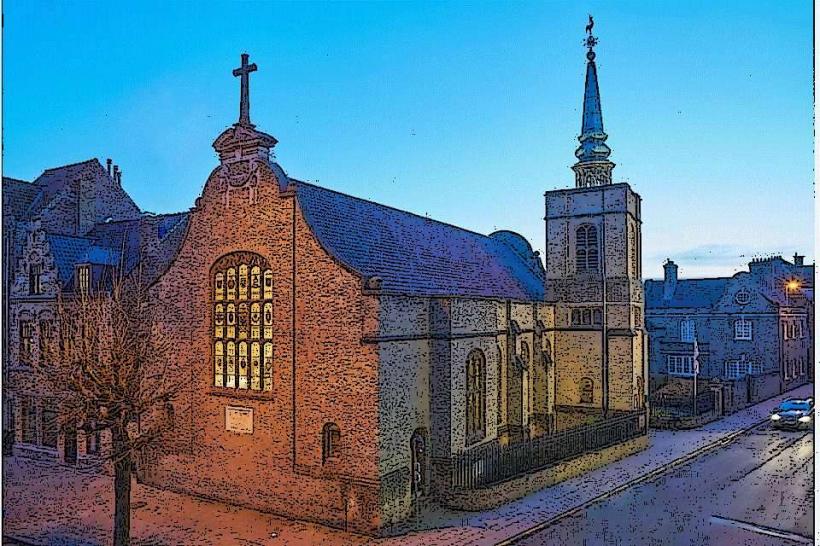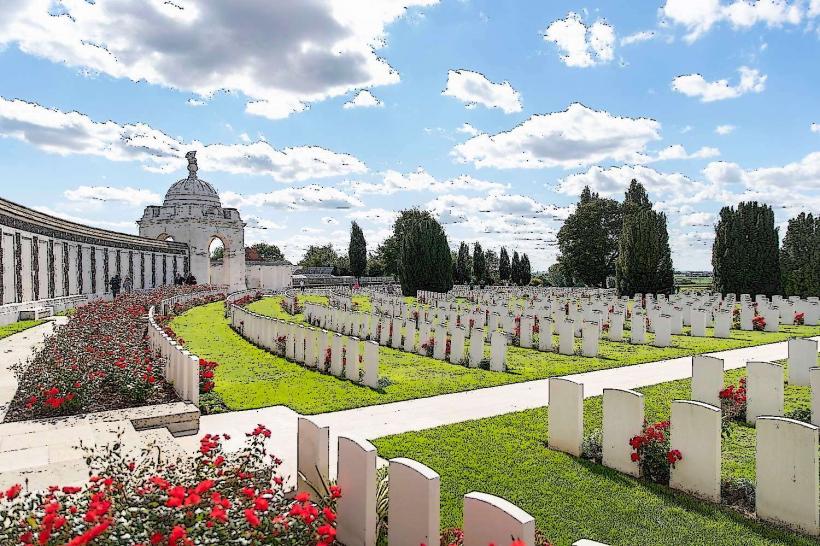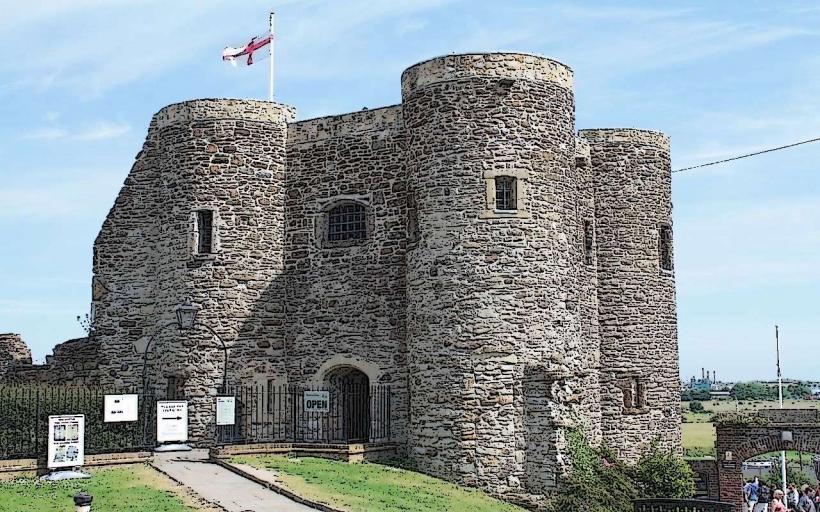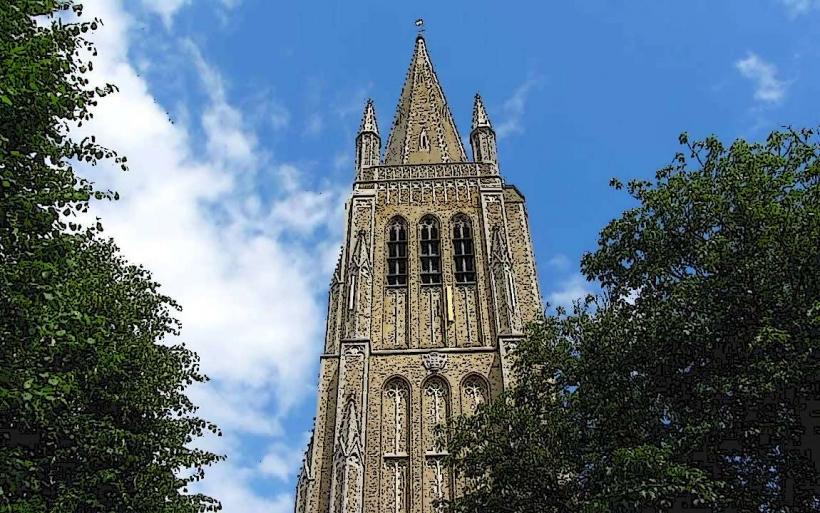Information
City: YpresCountry: Belgium
Continent: Europe
Ypres (known as Ieper in Dutch) is a city in the Flemish Region of Belgium, located in the province of West Flanders. Ypres is a city deeply entwined with World War I history, as it was the site of some of the most devastating battles of the war, including the Battle of Ypres and the Ypres Salient. Today, Ypres stands as a symbol of resilience, peace, and remembrance, attracting visitors from around the world who come to pay homage to the soldiers who fought and died in this region.
History
- Medieval Origins: Ypres' history dates back to Roman times, but the city’s prominence began during the Middle Ages. It was an important commercial center in the Flemish region, thanks to its location at the crossroads of key trade routes. By the 13th century, it was a prosperous wool town, and it became one of the most important cities in the County of Flanders.
- Early Modern Period: In the 15th century, Ypres was part of the Burgundian Netherlands, and its cloth industry thrived, making it a key player in European trade. However, the city also faced hardships, including invasions and occupation by foreign powers.
- World War I and the Ypres Salient: Ypres became globally famous due to its central role during World War I, specifically as the site of several major battles, including the First Battle of Ypres (1914) and the Second Battle of Ypres (1915). The Ypres Salient was a bulge in the frontline that saw some of the most intense and brutal fighting of the war, including the first large-scale use of chemical weapons by the Germans.
- Post-War Reconstruction: After the war, Ypres was heavily damaged and destroyed, with the iconic Medieval Cloth Hall and Saint Martin's Cathedral reduced to rubble. The city was meticulously rebuilt in the 1920s and 1930s, with restoration efforts based on historical designs.
- Modern Times: Today, Ypres is a bustling city that attracts thousands of visitors each year due to its historical significance. The city is home to several memorials and museums dedicated to the Great War, and it continues to honor the memory of the soldiers who fought there. The Last Post ceremony, held daily at the Menin Gate, is one of the city’s most significant events.
Key Landmarks and Architecture
Ypres is rich in architectural heritage, with many buildings dating back to the Middle Ages and early modern period, as well as World War I memorials.
- Menin Gate Memorial: The Menin Gate is perhaps the most iconic landmark of Ypres and one of the most significant war memorials in the world. This impressive archway, built in 1927, commemorates the soldiers who died in the Ypres Salient but have no known grave. Every evening, a ceremony called The Last Post is held at the gate, with buglers playing the last post to honor the fallen.
- In Flanders Fields Museum: Located in the Cloth Hall (Lakenhalle), the In Flanders Fields Museum is dedicated to the events of World War I in the region. The museum presents a compelling narrative through historical artifacts, personal stories, and multimedia displays that explore the impact of the war on Ypres and its inhabitants. It is one of the most important museums for understanding the human side of the war.
- Cloth Hall (Lakenhalle): The Cloth Hall is a stunning example of Gothic architecture and one of the most important buildings in Ypres. It was originally built in the 13th century as a trading center for the city's textile industry. The building was completely destroyed during the war but was meticulously reconstructed after the conflict. The Cloth Hall houses the In Flanders Fields Museum and is a key architectural feature of Ypres' town square.
- Saint Martin's Cathedral (Sint-Maartenskathedraal): The Saint Martin's Cathedral is another key landmark in Ypres. The cathedral dates back to the 13th century and was severely damaged during World War I, but it was also carefully rebuilt. The tower offers great views over the city and the surrounding landscape.
- Ypres Town Hall: The Ypres Town Hall is a striking Gothic building located in the city center. It was originally built in the 13th century and is known for its tall bell tower and elaborate stonework. The town hall remains the seat of local government and also hosts various cultural events.
- St. George's Memorial Church: This Anglican church is dedicated to the memory of British soldiers who fought in the Ypres Salient during World War I. The church features several memorial plaques and is a place of reflection and remembrance for visitors, especially those from the UK.
- The Yorkshire Trench and Dugout: Located just outside Ypres, this World War I site preserves a section of a British trench system along with dugouts, where soldiers took shelter during the battles. The site is an excellent place to experience what life was like on the front lines.
Culture and Festivals
Ypres celebrates its rich heritage and commemorative events while also embracing modern cultural activities.
- The Last Post Ceremony: Held every evening at the Menin Gate, the Last Post is a deeply moving tradition that commemorates the soldiers who lost their lives during World War I. The ceremony is accompanied by a bugler performance of the traditional Last Post, followed by a moment of silence. This ritual has been held continuously since 1928 and is a focal point for remembrance in the city.
- Ypres Medieval Festival: The Ypres Medieval Festival is an annual event that celebrates the city’s medieval heritage. The festival features medieval reenactments, medieval music, costumes, and a marketplace with traditional crafts. It’s a great way to explore the city’s history in a fun and immersive way.
- Ieper Music Festival: This annual music festival attracts international musicians and performers who participate in a series of concerts and performances across the city. The festival showcases a wide range of music, from classical to contemporary.
- Christmas Market: During the holiday season, Ypres hosts a Christmas market in the central square, where visitors can enjoy local food, festive decorations, and artisan goods. The market is a popular destination for those looking to experience the city’s festive atmosphere.
- Flanders Fields Marathon: Ypres is the host city for the Flanders Fields Marathon, an event that attracts participants from around the world. The marathon follows a historic route through the battlefield sites of World War I and commemorates the bravery and sacrifice of those who fought in the region.
Cuisine
Ypres offers a range of Belgian and Flemish cuisine, with many traditional dishes showcasing the region’s agricultural heritage.
- Flemish Stew (Stoofvlees): A rich and hearty stew made from beef slow-cooked in Belgian beer, typically served with fries. This is a staple of Flemish cuisine and a must-try dish when visiting Ypres.
- Moules-frites: Mussels are a popular dish in Ypres, often prepared in a white wine sauce or with garlic and cream. It is traditionally served with a side of crispy frites.
- Waterzooi: A traditional Flemish stew made with chicken or fish, vegetables, and a creamy broth. It’s a comforting dish that’s popular in the region.
- Belgian Waffles: Ypres, like much of Belgium, is known for its delicious waffles, which come in many varieties, often topped with chocolate, whipped cream, or fresh fruit.
- Belgian Chocolate: Ypres offers an excellent selection of Belgian chocolates from local chocolatiers, making it a great place to sample high-quality sweets and pralines.
Transportation
Ypres is well-connected to other major Belgian cities and the surrounding region.
- By Train: Ypres has a train station that connects it to cities like Brussels, Lille (France), and Oostende. The station is part of the Belgian rail network and provides easy access to the rest of the country.
- By Car: Ypres is easily accessible by car, located near major roads that connect to Brussels, Lille, and Antwerp. The A19 motorway connects Ypres to Lille and Kortrijk.
- Public Transport: The De Lijn bus service operates throughout Ypres and the surrounding areas, providing a convenient way to travel locally and explore the region.
Conclusion
Ypres is a city with a profound historical legacy, especially in relation to World War I. The city's memorials, museums, and commemorative ceremonies attract visitors who seek to understand the impacts of the war on the region. At the same time, Ypres offers a charming town center, medieval heritage, and rich cultural experiences. Whether visiting the Menin Gate, walking through the In Flanders Fields Museum, or enjoying a meal in a local café, Ypres is a place of remembrance, reflection, and community.

